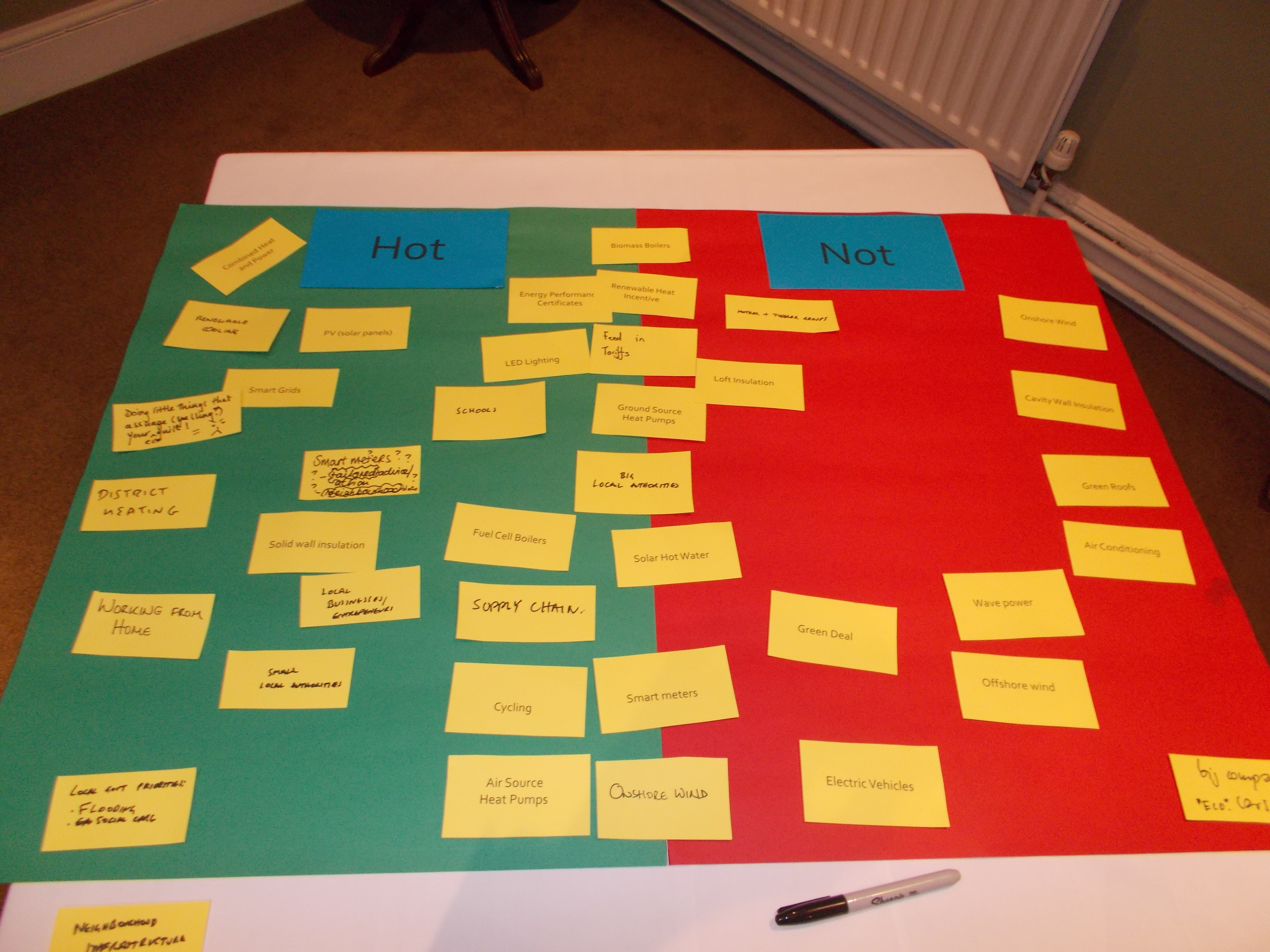Future Climate has received a grant to spread the word about smart meters amongst people living in shared houses in the West Midlands, North West and London. Future Climate is one of just 18 national and regional organisations to receive a large grant from the Smart Energy GB in Communities fund.
Every home in Britain will be offered a smart meter by their energy supplier, at no extra cost, by 2020. Smart meters provide gas and electricity readings directly to suppliers, meaning an end to estimated billing. They also show people how much they are using in pounds and pence, via a hand-held in-home display. Future Climate believes the residents of shared houses should not miss out on the new smart meter technology, and the financial, comfort and environmental benefits it can bring.
The term House in Multiple Occupation or HMO is applied to any private sector rented shared home occupied by more than 3 people in 2 households. Shared houses are the cheapest and most-easily accessed form of housing: they accommodate people on the lowest income, vulnerable and younger people.
Andy Deacon, Director of Future Climate said, “Shared houses are often cold houses. Tenants usually don’t have much money, and these are often big, draughty Victorian properties. One NUS study found that half of students in shared houses are living in cold, damp conditions. Close to one in three shared housing residents say that they’ve fallen out with their house mates over the costs of heating. Smart meters will give new control to HMO residents keeping them warmer, making managing bills easier and reducing disputes.”
Working with Smart Energy GB in Communities and alongside Chartered Institute of Environmental Health and the National HMO Network, Future Climate are running a project to communicate with HMO tenants, landlords and council officers about smart meters. Future Climate will tell 1000 HMO landlords about smart meters and through them engage 5000 HMO tenants.
As part of this project we will:
1) Communicate with local council officers working with HMOs in the West Midlands, North West and London, to enable them to understand the roll out
2) Provide regionally-relevant resources that council officers can use to explain about smart meters in their communications with HMO landlords and tenants. These resources will encourage and support landlords to explain to their tenants the benefits of smart meters.
3) Communicate direct with some of the UK’s leading HMO landlords so they can act as leaders for the shared housing sector.
Future Climate is the UK’s leading organisation working on energy issues with HMOs: our earlier research (see tinyurl.com/h4gqouu ) produced a segmentation of the different types of HMOs highlighting the different types of shared home and how different types of tenant use energy.
This grant fund is a central part of Smart Energy GB’s work to ensure everyone in Great Britain hears about smart meters and knows how to use them to get their gas and electricity under control. It is working with partners across England, Scotland and Wales to reach people who may face barriers to claiming or using their smart meter.
The fund is managed by Charities Aid Foundation (CAF), which has 45 years’ experience in designing and delivering strategic grant-making programmes. It is part of the Smart Energy GB in Communities programme, which is being delivered by a consortium of charities – National Energy Action (NEA) and Energy Action Scotland (EAS), Media Trust, and CAF – to help ensure no one is left behind in the smart meter rollout.
Sacha Deshmukh, Chief Executive of Smart Energy GB, said:
“Smart meters are transforming the way we buy and use energy. Our job at Smart Energy GB is to make sure that everyone in Britain knows what a smart meter is, how to get one, and how to use it to get their gas and electricity under control.
“We know we can’t do this job alone. We rely on expert partners to share information in ways that work for people who may need additional support to understand how to get and use a smart meter. We’re delighted to be working with Future Climate through Smart Energy GB in Communities, to ensure everyone has the information they need to benefit from this transformative new technology.”
-ENDS-
Notes to editors
About the Smart Energy GB in Communities fund
The Smart Energy in Communities fund is for organisations working with one or more priority groups that Smart Energy GB has identified as potentially facing barriers to awareness, uptake, and use of smart meters.
Grants are available for not-for-profit organisations that can help Smart Energy GB reach priority groups, including:
* district heating customers (those who share a communal source of heat with other properties)
* people lacking proficiency in English (or Welsh in Wales)
* people lacking basic digital skills
* people with a learning disability
* people with low literacy
* people with memory impairment
* people with no personal internet access
* off-grid gas customers
* prepay customers
* private tenants
* people with severe or profound deafness
* social housing tenants
Priority groups are likely to change as the smart meter rollout progresses so please refer to latest guidance for more information.
The larger grants fund (£10,000 to £25,000) will re-open in early 2017. Applications to the small grants fund (under £10,000) are open.
The following organisations have been awarded grants and will launch outreach projects before the end of this calendar year:
* Action in Caerau and Ely
* Act on Energy
* Carers Scotland
* Centre for Sustainable Energy
* Community Action Northumberland
* Devon Communities Together
* Future Climate
* Groundwork Leeds
* Groundwork North Wales
* Groundwork Wales
* Lewisham Council
* London Sustainability Exchange
* Melin Homes
* NUS
* Severn Wye Energy Agency
* South East Wales Energy Agency
* TAPE Community Action and Film
* Wealden District Council
Further details on the grants awarded can be found at: www.cafonline.org/smartenergygb
Priority groups for 2016 are below. Our priority groups are likely to change as the smart meter rollout progresses so please refer to latest guidance for more information.
* District heating customers (those who share a communal source of heat with other properties)
* People lacking proficiency in English (or Welsh in Wales)
* People lacking basic digital skills
* People with a learning disability
* People with low literacy
* People with memory impairment
* People with no personal internet access
* Off-grid gas customers
* Prepay customers
* Private tenants
* People with severe or profound deafness
* Social housing tenants
Visit smartenergyGB.org/partner-resources for further information on Smart Energy GB in Communities.



